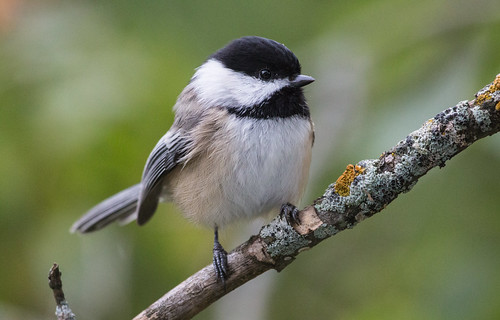 |
| Black-capped Chickadee: #1 on my life list, first seen March 2, 1975 |
March 2, 2015, was the fortieth anniversary of my becoming a birder. On that Sunday in 1975, I spent over an hour in Baker Woodlot on the Michigan State University campus searching for a bird—any bird—and finally found and painstakingly identified it—a Black-capped Chickadee. Three days later, I saw my second species—Mallard—on the Red Cedar River on campus. Four days later I doubled my life list again when a European Starling and House Sparrow first visited the bird feeder Russ put up for me behind our apartment. I doubled my life list again on March 17, when Russ and I visited the Morton Arboretum outside Chicago and I added cardinal, crow, Canada Goose, and Bufflehead, bringing my list to 8. That also marked the last time I’d ever double my life list in a single day.
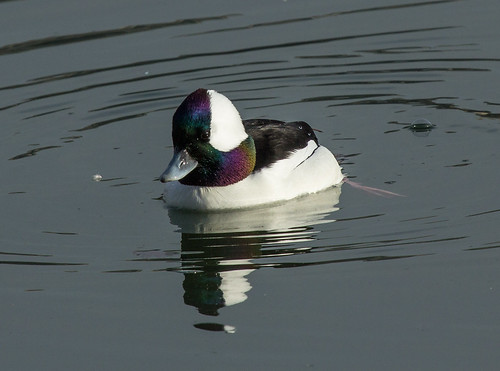 |
| Bufflehead: #8 on my life list, first seen March 17, 1975 |
I was so inexperienced that it took forever to track down a distant movement or sound to find the bird, and then I had to work my way through the field guide trying to figure out what it was while it was still in view. I often missed, but by the time I finally did find and identify a singing bird, I’d securely memorized the song and worked through a lot of similar species in the field guide.
One day that spring, May 11, I added 10 lifers, including my first four warblers. The heady excitement of finding and figuring out all these new birds on my own was as intense as falling in love.
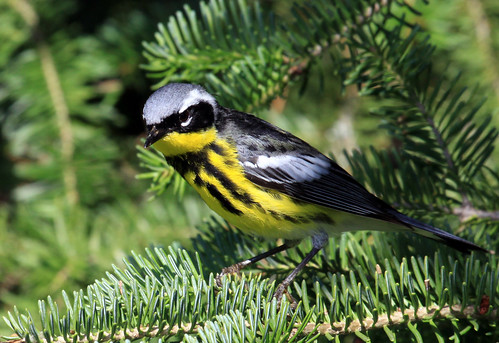 |
| Magnolia Warbler: #33 on my life list, and one of the warblers I saw on May 11, 1975. |
I often encounter people who started their life lists at birding festivals or on organized field trips. A life list can mushroom that way—a morning walk with an expert in good midwestern habitat during migration can easily yield 50, 70, or more species, while at the end of my entire first spring of daily birding, my life list had reached only 40. But my slow initial progress paid off in the long run—the skills I was developing in finding and identifying birds, including learning their vocalizations, were solid.
I jumped on the fast track that June, when I took a field ornithology class at the Kellogg Biological Station, near Kalamazoo, Michigan, more than doubling my life list in 3 weeks, bringing it to 90. The class was held 2 days a week, and I spent much of the remaining 5 days each week out searching for birds on my own. All that focus, day after day, helped me ace the field exams.
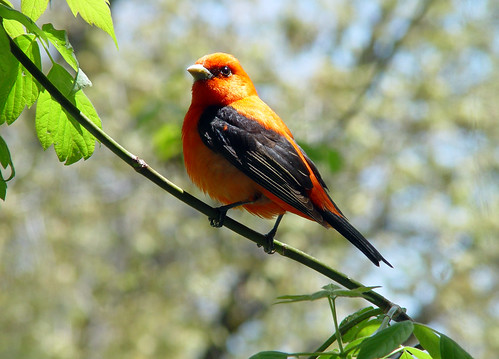 |
| Scarlet Tanager: #60 on my life list, first seen June 23, 1975 |
I added 30 more lifers in 1975, ending the year with 120 species on my life list. The next year I brought it to 225. I reached the 300 mark in 1978, and broke 400 in 1980.
 |
| Barred Owl: #268 on my lifelist, seen May 7, 1978 in Wisconsin |
Russ and I made trips to Texas and to southeastern Arizona, using bird-finding books by Jim Lane to tell us where to go and what to look for. Madison Audubon sent me on a trip to Estes Park, Colorado, and I got to go on a trip, mostly camping, to many Western spots with my sister-in-law. I delighted in figuring out so many unfamiliar species in my old, plodding way, though I was much more skilled now, missing few of the birds I searched for. My romance with birds and my joy in finding and identifying them on my own were as overpowering as ever.
 |
| Plain Chachalacas: #297 on my life list, first seen December 28, 1979 |
 |
| Brown-capped Rosy Finch: #357 on my life list, first seen in Colorado on July 2, 1979. |
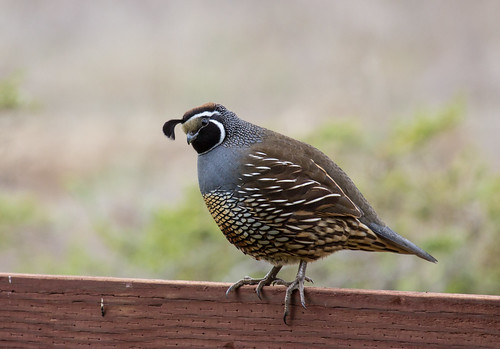 |
| California Quail, #394 on my life list, first seen in Washington August 18, 1979 |
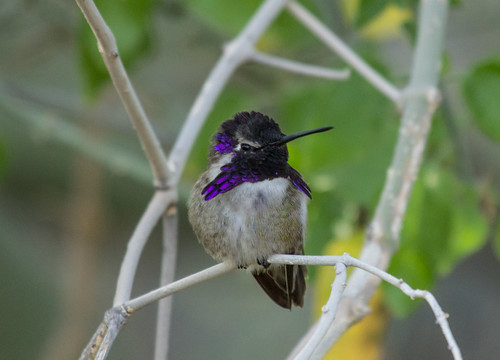 |
| Costa's Hummingbird: #429, first seen in Arizona on April 5, 1982 |
Things settled down when we had our first baby in 1981. I was just as passionate about birds, but my love was ripening into something integrated with family life. I was limited to watching them closer to home and on family vacations, so building my life list slowed down considerably. I didn’t break 500 until 1991, and didn’t get to 600 until 1999. In 2001, when my youngest was in high school, I took my first trips to Costa Rica and Trinidad, which helped me break 1000.
Now I have about double that, and my love for birds is as strong as ever, but it’s matured into a quiet, constant love rather than a red-hot acquisitive passion. So soon after my heart attack, I’m feeling mellow and Zen-like, happy to enjoy whatever comes my way without feeling any compunctions to chase down rarities.
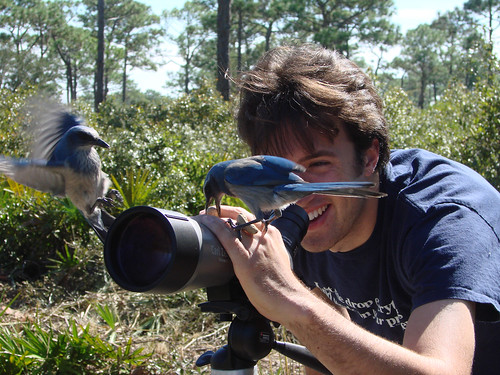 |
| Florida Scrub-Jay, #600 on my life list, first seen March 28, 1999 |
On March 21, I’m getting a puppy named Pip, and have decided to start a whole new list of birds seen with her at my side. We’ll be starting out when I pick her up at her breeder’s home in a Chicago suburb, so our first birds together will include many of the ones I first saw 40 years ago. I don’t expect her to master the differences between Empidonax flycatchers, or even the differences between a chickadee and a Blue Jay, and I expect that a small dog will be more inclined to moseying rather than high-powered bird chasing, just as I seem to be right now. But both heading to wonderful birding spots and sticking closer to home, my jolly little birding companion will give me a lovely way to start anew, just in time to mark the beginning of my fifth decade birding.
 |
| Pip, my future birding sidekick |










